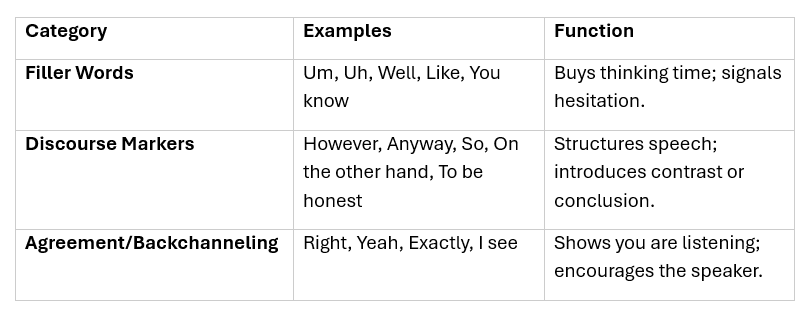Improve English Speaking Skills and Boost Your Fluency Naturally

Have you ever felt a knot of anxiety tighten in your stomach when someone asks you a question in English? Perhaps you can read complex articles and write perfect emails, but when it comes to speaking, the words vanish, the grammar crumbles, and your confidence plummets. This is a common and frustrating experience. Fluency isn't just about knowing a lot of words; it's about the speed and ease with which you can access and use them—it's about making English feel natural.
Fluency in English often acts as a bridge between Turkish and German classes for many learners, especially in multicultural cities like Istanbul. Because English is taught widely in Turkish schools and used as a global lingua franca, it helps Turkish speakers understand how foreign languages are structured. English and Turkish differ grammatically—English being Germanic and Turkish being agglutinative—but both rely heavily on rhythm, clear pronunciation, and everyday expressions. Many Turkish learners find that mastering English makes learning other languages, such as German, easier because they’ve already built habits like thinking in a second language, recognizing cognates, and developing listening comprehension through media and online content.
The Fluency Mindset: Shifting Your Internal Dialogue
Before we tackle pronunciation or grammar, we must address the single biggest obstacle to fluency: fear. The fear of making a mistake, the fear of sounding silly, or the fear of not being understood is what causes hesitation and breaks fluency.
1. Embrace Mistakes as Data Points
A fluent speaker isn't someone who never makes mistakes; it's someone who keeps speaking despite them. Think of mistakes not as failures, but as free, personalized feedback from the universe. Every time you make an error and someone corrects you, your brain gets a crucial piece of data on how to adjust.
-
Actionable Step: Change your internal script. When you make an error, instead of thinking, "I failed," think, "Ah, that's how it's done!"
2. Prioritize Communication Over Perfection
Many advanced learners suffer from "analysis paralysis." They try to assemble the grammatically perfect sentence in their head before saying it, which slows them down and kills fluency. Native speakers interrupt themselves, use filler words (um, like, well), and sometimes speak in incomplete sentences. They are fluent because they focus on the message, not the structure.
-
Rule of Thumb: If a native speaker would understand your meaning, your sentence is successful. Clarity precedes correctness.
3. The Power of Self-Talk
The language you use internally affects your external output. If you constantly tell yourself, "I'm bad at speaking," your brain will believe it and limit your performance. Start using positive, future-oriented language.
-
Try This: Replace "I can't speak English well" with "I am improving my English speaking every day."
Fluency isn't just about vocabulary; it's about the sound, rhythm, and flow of the language. To sound truly fluent, you must pay attention to how words connect, not just what they mean.
The Building Blocks: Vocabulary, Grammar, and Phrasing
Fluency isn't just about speaking fast; it's about having the right tools—vocabulary and grammar—accessible instantly, without conscious effort.
1. Focus on High-Frequency Collocations
Stop learning single, isolated words. Native speakers communicate in word partnerships, or collocations. These are words that naturally go together.
-
How to Practice: When you learn a new noun (e.g., opportunity), immediately search for common verbs/adjectives used with it (seize an opportunity, golden opportunity). This switches your brain from word-by-word translation to thinking in ready-made phrases.
2. Master Conversational Grammar
Instead of memorizing obscure grammar rules, focus on the structures that are used constantly in spoken English:
-
Modal Verbs: Should, Could, Would, Might, Must. These express probability, possibility, advice, and requests—the backbone of daily conversation.
-
Conditional Clauses (If-Statements): Mastering the first (real possibilities) and second (unreal or hypothetical situations) conditionals allows you to express complex thoughts clearly.
-
Example: "If I were you, I would take that job." (Second conditional for advice)
-
-
Phrasal Verbs: Verbs combined with a preposition or adverb (e.g., put off, look into, take up). These are essential for sounding natural, as native speakers use them constantly.
3. Incorporate Filler Words and Discourse Markers
Fluent speech is rarely silent. When a speaker pauses, they use filler words to buy time and signal they haven't finished speaking. Discourse markers connect ideas and opinions.10 Using these makes your speech sound much more natural and gives your brain a crucial second to formulate the next thought.


Final Verdict: The Secret Ingredient
Improving English speaking skills and boosting fluency is less about being smart and more about being brave and consistent. The secret ingredient is time on task—the sheer number of hours your mouth spends articulating English sounds and sentences
